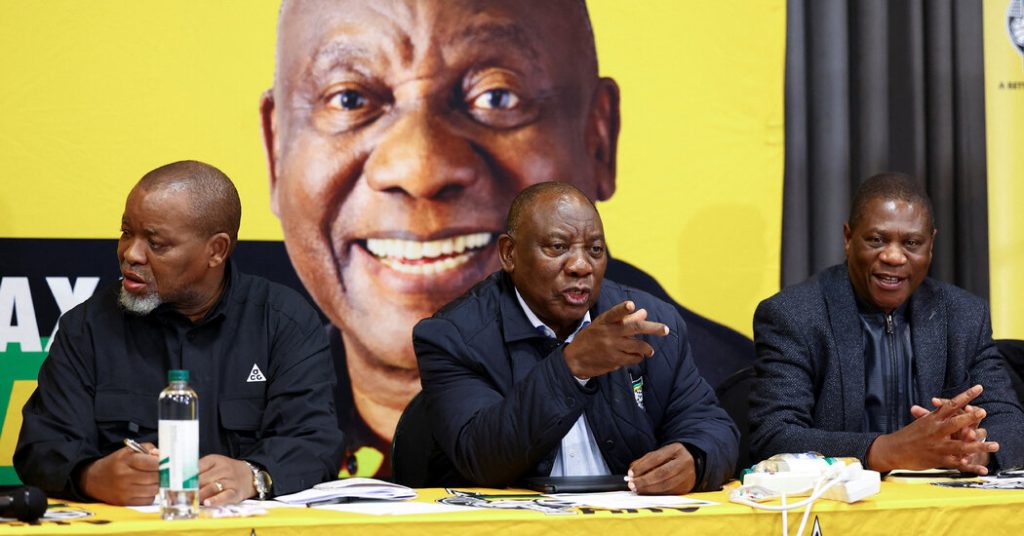President Cyril Ramaphosa of South Africa is seeking to form a government that includes a wide range of parties after his African National Congress party faced historic losses in the polls. Led by the A.N.C. since the fall of apartheid, South Africa has been in limbo due to issues like high unemployment, power outages, and crime. The A.N.C., winning 40 percent of the vote, now has 159 seats in the 400-seat National Assembly and is in talks with opposition parties to form a government of national unity to bring stability.
In this proposed government, many parties would have representation, and cabinet ministers would be from multiple parties. This approach seems aimed at avoiding forming an exclusive coalition with one of the larger parties, each which has opposing views. Some parties have expressed skepticism about working with others across the aisle due to distinct policy goals. This type of government, previously led by Nelson Mandela, may be seen as unworkable as it requires collaboration between opposing parties.
The Democratic Alliance, South Africa’s largest opposition party, has raised concerns about the A.N.C. working with parties like Jacob Zuma’s uMkhonto weSizwe Party and Julius Malema’s Economic Freedom Fighters. These parties represent radical economic shifts that could alarm voters. Mr. Ramaphosa has made it clear that he will not compromise with demands that go against the constitution and values such as stability, transparency, and accountability.
Negotiations between the A.N.C. and the various parties are ongoing, with meetings scheduled to discuss potential partnerships. The A.N.C. seeks to create a government that includes a diverse range of views to move the country forward. The Democratic Alliance has expressed willingness to collaborate in the interest of the country’s progress rather than emphasizing their previous criticism of the A.N.C.
Mr. Ramaphosa acknowledges the fears of fragmentation and instability following the election but sees it as an opportunity to create a more inclusive and cooperative approach to governance. The outcomes of the negotiation with various parties will determine the future direction of South Africa’s government and policies. It remains a complex and challenging process that will test the ability of these parties to work together for the common good of the country.


